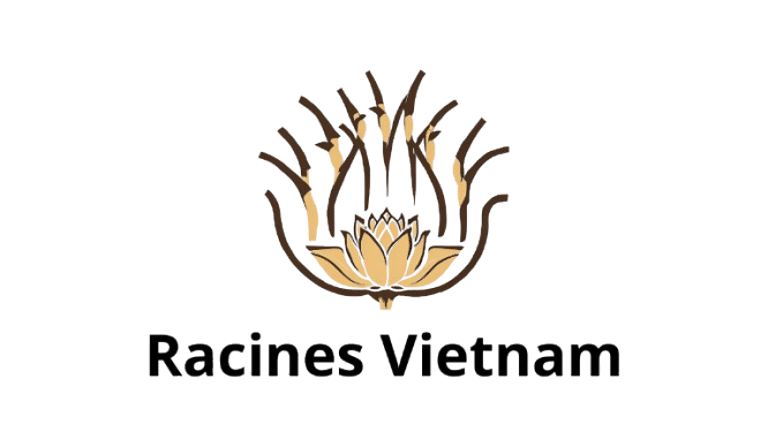“A blog created by an adopted Franco-Vietnamese for all those seeking to reconnect with their origins.”
Respect and Hierarchy in Vietnamese Society | Racines Vietnam
Discover how respect and hierarchy shape Vietnamese society. A cultural guide for travelers, adoptees, and expats seeking authentic connection.
3/7/20253 min read


Respect and Hierarchy in Vietnamese Society: A Cultural Pillar to Understand
Vietnam, a country with a rich Southeast Asian heritage, is deeply rooted in the values of respect and hierarchy. These concepts, embedded in daily life, influence social, family, academic, and professional relationships. For travelers, expatriates, or adoptees seeking to reconnect with their roots, understanding this system is essential for integrating harmoniously into Vietnamese society.
1. The Cultural Roots of Hierarchy in Vietnam
The influence of Confucianism, imported from ancient Chinese culture, structured Vietnamese society around respect for elders, social order, and ancestor worship. The moral philosophy of Confucius (Kong Fu Tseu), alongside Daoism, Buddhism, and the teachings of Lao Tzu, left a lasting mark on Vietnam’s cultural identity.
Chinese philosophy, enriched by dynasties such as the Zhou dynasty, Han dynasty, Yuan, Tang dynasty, Song dynasty, Wei, and Qin, introduced key concepts like yin and yang, virtues, human nature, righteousness, the quest for immortality, and moral precepts inspired by the I Ching (Book of Changes). These doctrines laid the foundations of a long-standing Confucian and Daoist tradition, which the Vietnamese adapted across centuries.
“Respect for one's parents and elders is the root of humanity.” — The Analects of Confucius
Influential Chinese philosophers and sages like Cheng, Wang Yangming, Chuang-tzu, and disciples of Confucius emphasized virtuous rulers, ruling through moral example, sincerity, benevolence, and social ethics. These philosophical writings deeply shaped Vietnam’s traditional hierarchy. Rituals, rites, morality, loyalty, and self-cultivation were pillars of a just order during periods like the Warring States Period.
The Dao, in Daoist philosophy, advocates for simplicity, naturalness, and non-action (Wu Wei). Teachings from the Daoist classics, including the Tao Te Ching by Lao Tzu, emphasized harmony with the cosmos. As Lao Tzu wrote: “Governing a large country is like frying a small fish. Too much handling will spoil it.”
The poetic Daoist concept of "the ten thousand beings" symbolizes the unity and diversity of life, a vision inherited by the Chinese people and reflected deeply in Vietnamese respect for natural hierarchy.
Core Confucian and Daoist Pillars:
Respect for elders (chaênh anh-em): emphasizing birth order
Filial piety (hiếu): moral duty toward parents and ancestors
Social harmony (hòa): avoiding open conflicts and maintaining balance
According to a study by the Vietnam Institute of Sociology, 72% of respondents believe that "respect for elders is a fundamental value of Vietnamese cultural identity."
2. Respect Within the Vietnamese Family
The family is the fundamental nucleus of Vietnamese society, governed by a strict feudal sense of hierarchy. Each member plays a specific role, and interactions are ruled by deep respect for previous generations, echoing the hierarchical order seen in ancient Chinese history during the reigns of different emperors.
Many regions preserve ancestral temples where rituals honoring forebears are still practiced. Ancient texts such as the Analects of Confucius stress: "In filial piety, nothing is greater than reverential awe of one's father."
3. Hierarchy in Everyday Life
Hierarchy permeates daily Vietnamese life:
Language: Pronouns vary according to age and status.
Workplace: Leaders are seen as moral authorities, reminiscent of ancient rulers in Chinese literature.
Education: Teachers are revered, and students are expected to practice humility.
The Tao Te Ching teaches that "all things governed without domination produce harmony," a principle deeply felt in Vietnam's non-confrontational social relations.
4. Respect in Spiritual Life
Respect is deeply ingrained in the spiritual fabric of Vietnam. Buddhist, Daoist, and ancestral beliefs structure much of social and religious life:
Visitors practice silence in Buddhist pagodas.
Families make offerings to ancestors during annual rituals.
Regional variations reflect influences from the Chinese religion, Jesuit missionaries, and broader East Asian philosophies.
During Tết (Vietnamese Lunar New Year), people visit elders to wish them prosperity, often giving li xi (red envelopes), a ritual deeply symbolic of intergenerational respect.
5. Challenges for Adoptees Returning to Vietnam
For Vietnamese adoptees raised abroad, returning to Vietnam can be culturally overwhelming. The Western style of open expression contrasts with local expectations of modesty and deference.
Practical Tips:
Observe before speaking.
Ask questions rather than asserting opinions.
Show humility toward elders and authority figures.
6. Respect and Modernity: A Smooth Evolution
Vietnamese society continues to evolve. Cities like Hanoi, Ho Chi Minh City, and Da Nang are becoming more globalized, yet fundamental values remain.
The Communist Party of Vietnam, still in power, upholds ties to its revolutionary past while welcoming cultural diversity. Influences from other Asian cultures and the revival of philosophical traditions show the adaptability of Vietnamese society.
Practices such as Tai Chi, philosophies of yin and yang, and respect for ancient virtues demonstrate the ongoing integration of tradition and modernity.
7. Further Reading (Internal Linking Suggestions)
[The Traditions of Tết: Between Family and Spirituality]
[Returning to the Roots: Vietnamese Adoptees' Journey]
[Cultural Mistakes to Avoid When Traveling in Vietnam]
[Understanding the Role of Ancestors in Vietnamese Culture]
Conclusion: Understanding to Truly Connect
Respect and hierarchy are not barriers — they are bridges to a deeper understanding of Vietnam. For travelers, adoptees, and lovers of Asian cultures, embracing these values inspired by Confucianism, Daoism, Buddhism, Chinese sages, philosophical traditions, and writings from periods like the Warring States fosters authentic connections.
Vietnam, rich in heritage and warmth, welcomes those who approach with humility, observation, and a deep respect for the enduring wisdom of ancient civilizations.
Main Menu:
Explorations:
Resources & Immersive Content
Community & Support
Legal & Languages
Contact & Social Networks
✉️ contact@racinesvietnam.com
📱 Instagram | Facebook | YouTube
©️ Copyright
© 2025 RacinesVietnam.com — Tous droits réservés
Site indépendant, créé sans code, hébergé par Hostinger
